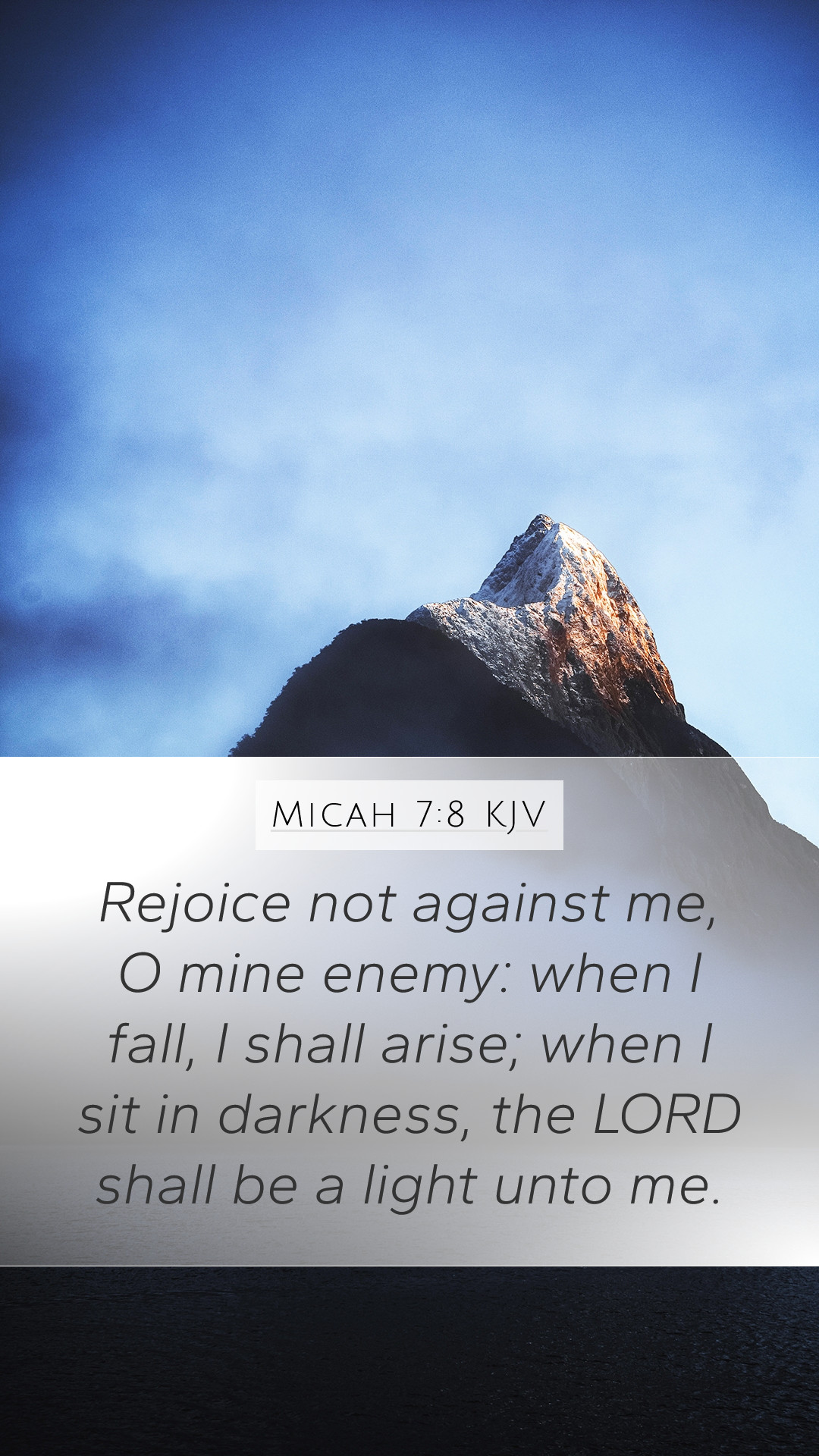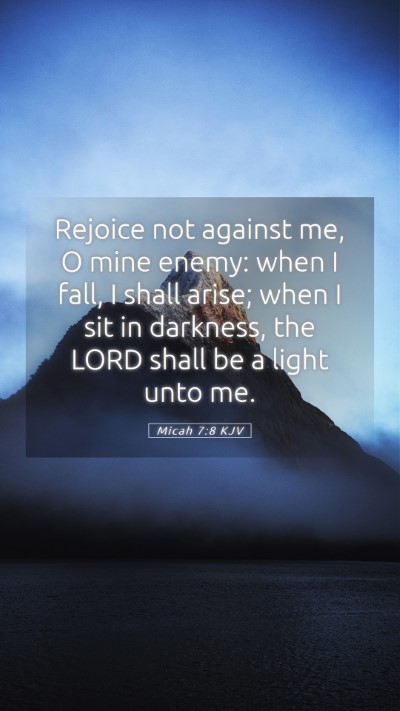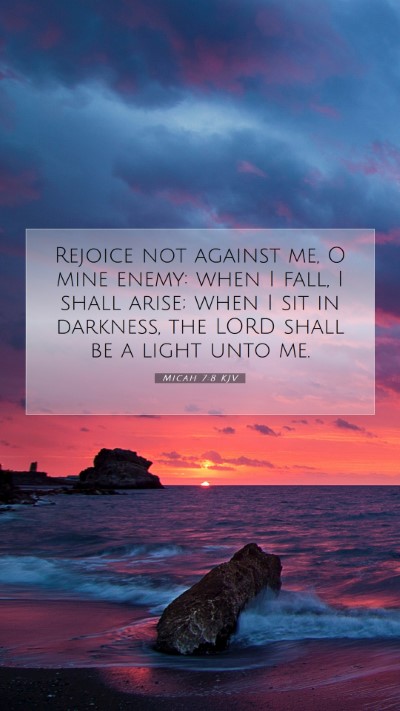Old Testament
Genesis Exodus Leviticus Numbers Deuteronomy Joshua Judges Ruth 1 Samuel 2 Samuel 1 Kings 2 Kings 1 Chronicles 2 Chronicles Ezra Nehemiah Esther Job Psalms Proverbs Ecclesiastes Song of Solomon Isaiah Jeremiah Lamentations Ezekiel Daniel Hosea Joel Amos Obadiah Jonah Micah Nahum Habakkuk Zephaniah Haggai Zechariah MalachiMicah 7:8 Meaning
What is the meaning of Micah 7:8?
Rejoice not against me, O mine enemy: when I fall, I shall arise; when I sit in darkness, the LORD shall be a light unto me.
Micah 7:8 Bible Verse Meaning
Understanding Micah 7:8
Bible Verse: Micah 7:8 - "Rejoice not against me, O mine enemy: when I fall, I shall arise; when I sit in darkness, the LORD shall be a light unto me."
Introduction to the Verse
This verse from the Book of Micah encapsulates profound themes of resilience, hope, and divine guidance amidst adversity. It serves as both a declaration of faith and an encouragement to believers facing challenges.
Verse Context and Background
Micah, a prophet in the 8th century BC, addressed issues of social injustice and spiritual apathy among the Israelites. Chapter 7 specifically reflects a plea for God's mercy and a recognition of personal and collective failures. The verse emphasizes the idea of falling and rising, illustrating the cyclical nature of despair and hope.
Bible Verse Interpretations
- Matthew Henry's Commentary: Henry interprets this verse as an acknowledgment of the inevitable struggles believers face. He highlights that even though the enemy may rejoice in our downfall, God's grace ensures that we can rise again. It showcases the faithfulness of God as a source of light in our darkest moments.
- Albert Barnes' Notes: Barnes points out that the phrase "when I fall" displays a recognition of human frailty. He suggests that the true enemy is not the external forces but the internal struggles. The promise that God will be a "light" signifies divine intervention that guides and restores.
- Adam Clarke's Commentary: Clarke emphasizes the emotional turmoil reflected in this verse. He notes that the call to not rejoice against me is a significant reminder of the trials faced by the righteous. Clarke explains that this verse is about hope and divine justice — even when one seems defeated, God's light will shine through.
Key Themes in Micah 7:8
- Resilience: The assurance that one can rise after a fall is a central theme. This reflects the understanding of human imperfection and the promise of redemption.
- Divine Light: The portrayal of the Lord as a light resonates with the concept of guidance and clarity, especially during times of despair.
- Struggle against Enemies: There is an acknowledgment of antagonistic forces. This verse serves to empower the believer, reminding them that their worth is not diminished by their adversaries.
Application of Micah 7:8
Micah 7:8 serves as a powerful reminder for believers facing life’s challenges. It encourages personal reflection and provides assurance that, despite setbacks, one can always lean on God for strength and guidance. This resilience can be applied in various life situations including:
- Personal crises
- Spiritual struggles
- Relationships and conflicts
- Societal injustices
Bible Study Insights
For those engaged in Bible study groups or online Bible study, this verse holds rich insights for discussion and reflection. Consider the following:
- Discuss the concept of “falling” and “rising” in personal spiritual journeys.
- Explore the significance of seeing God as light in times of darkness.
- Reflect on how to adequately respond to adversity, both personally and communally.
Related Bible Verses
- Psalm 37:24: "Though he fall, he shall not be utterly cast down: for the LORD upholdeth him with his hand."
- 2 Corinthians 4:8-9: "We are troubled on every side, yet not distressed; we are perplexed, but not in despair; persecuted, but not forsaken; cast down, but not destroyed."
- Isaiah 60:1: "Arise, shine; for thy light is come, and the glory of the LORD is risen upon thee."
Conclusion
Micah 7:8 is a cornerstone of hope for believers. With insights from traditional commentaries and its biblical context, this verse encourages a deep understanding of God’s faithfulness during trials. As one studies this scripture, it invites personal reflection, communal discussion, and application of its timeless truths.


